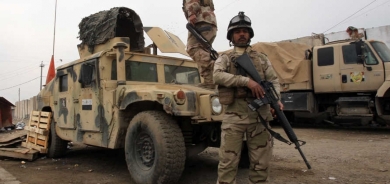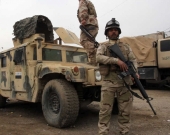Ebola virus spreads to Liberia medical staff

Tolbert Nyenswah, an assistant health minister, said Dr Samuel Brisbane died on Saturday at an Ebola treatment centre on the outskirts of the capital, Monrovia.
The WHO says the outbreak, the largest recorded so far, has also killed 319 people in Guinea and 224 in Sierra Leone.
Health workers are at serious risk of contracting the disease, which spreads through contact with bodily fluids.
Sierra Leone's top Ebola doctor fell ill with the disease last week, and the aid group Samaritan's Purse said on Saturday that an American doctor in Liberia was also sick.
Isolation
The charity said Dr Kent Brantly had been isolated at the group's Ebola treatment centre at the ELWA hospital in the Liberian capital Monrovia.
"Dr. Brantly is married with two children," the group said, in a statement posted to its website on Saturday.
"Samaritan's Purse is committed to doing everything possible to help Dr Brantly during this time of crisis. We ask everyone to please pray for him and his family."
Brantly is the medical director of the Samaritan's Purse Ebola case management centre in Liberia, where the agency continues to work with Liberian and international health officials to contain the outbreak.
Ebola is an haemorrhagic fever with a very high fatality rate. Liberia, Sierra Leone and Guinea have borne the brunt of the recent epidemic, and last week Nigeria recorded its first death.
As of July 20, the number of Ebola cases recorded in the months-long epidemic stood at 1,093, including more than 660 deaths, according to the World Health Organisation.
The virus can fell victims within days, causing severe fever and muscle pain, vomiting, diarrhoea and, in some cases, organ failure and unstoppable bleeding.
With no vaccine, patients believed to have caught the virus must be isolated to prevent further contagion.
Ebola first emerged in 1976 in what is now the Democratic Republic of Congo, and is named after a river there.
Al Jazeera














